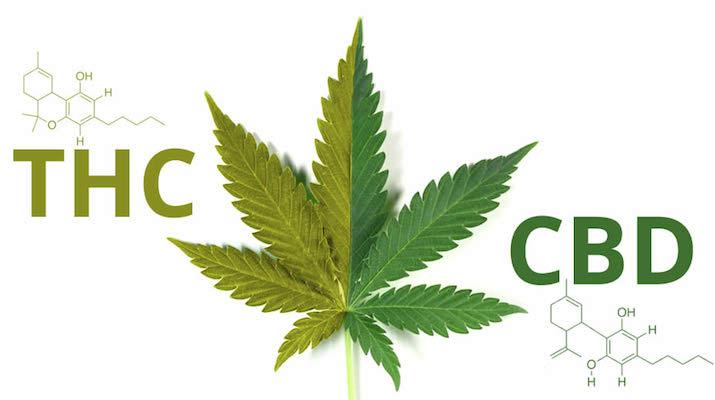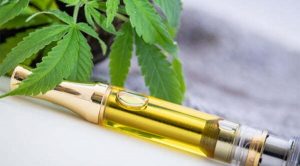As the legal use of marijuana and other cannabis products grows, consumers are increasingly interested in their options. This includes cannabidiol (CBD) and tetrahydrocannabinol (THC), two natural compounds found in plants of the genus Cannabis.
CBD can be extracted from hemp or marijuana. Cannabis is cannabis plants that contain less than 0.3 percent THC, and marijuana plants are cannabis plants that contain higher concentrations of THC. CBD is sold in the form of gels, chewing gums, oils, additives, extracts, and more.
THC is the main psychoactive substance in marijuana that gives a high sensation. It can be consumed when smoking marijuana. It is also available in the form of oils, foods, tinctures, capsules, and more.
Both compounds interact with the endocannabinoid system of your body, but they have very different effects.
Read on to find out more about these compounds. Although they can have a lot in common, they have some key differences that determine how they are used. But before we get into the difference between CBD and THC, lets first see the places where the use of Cannabis and Marijuana is legal -so no one gets in trouble.
Quite some states in the US have now legalized the use of weed.
At the turn of the new year, the recreational use of marijuana became legal in one more state -Illinois. More states could follow suit in 2020, with several other states set to put the legalization of the recreational use of marijuana to vote. However, Cannabis is still considered an illegal substance at the federal level.
According to an end of the year CBS News Poll, support for the legal use of pot hit a new high in 2019, with 65% of U.S. adults saying marijuana should be legal. And, for the first time in the CBS News poll, a majority of Republicans (56%) favored legalizing marijuana. Although people above the ages of 65 continued to be the least likely age group to support marijuana legalization. Although, now, slightly more of them supported it (at 49%) than opposed it (at 45%) in the 2019 survey.
The trend has been reflected in state legislatures, although not totally. According to the National Conference of State Legislation, about thirty-three states have so far legalized the use of marijuana in some form. Since 2012 — when Washington and Colorado became the first two states to legalize recreational marijuana use — 11 other states have also legalized the recreational use of marijuana.
Currently the legal recreational use of Marijuana in Alaska, California, Colorado, Massachusetts, Maine, Michigan, Nevada, Oregon, Vermont, Washington, and the District of Columbia. And, on the 1st of January, 2020, Illinois became the 11th state to legalize the recreational use of marijuana.
As the legal use of marijuana gains ground, users get even more confused given the plethora of options. Users are even more confused by the difference between THC vs CBD. So, in the latter part of this article, we will explain the differences between THC and CBD.
CBD vs THC: what’s the difference?
CBD vs. THC: chemical structure
Both CBD and THC have the same molecular structure: 21 carbon atoms, 30 hydrogen atoms, and 2 oxygen atoms. A slight difference in atom arrangement explains the various effects on your body.
Both CBD and THC are chemically similar to your body’s endocannabinoids. This allows them to interact with your cannabinoid receptors.
The interaction affects the release of neurotransmitters in your brain. Neurotransmitters are chemicals that are responsible for transmission between cells and play a role in pain, immune function, stress, sleep, etc.
CBD vs. THC: psychoactive components
Despite a similar chemical structure, CBD and THC do not have the same psychoactive effects. CBD is a non-psychoactive compound. This means that it does not produce the “high” associated with THC.
THC binds to cannabinoid 1 (CB1) receptors in the brain. It produces the ‘high’ or a feeling of euphoria.
CBD binds very weakly to CB1 receptors. This can interfere with the binding of THC and weaken the psychoactive effects.
CBD vs. THC: Medical Benefits
CBD and THC have many of the same medical benefits. They can provide relief under several identical conditions. However, CBD does not cause the euphoric effects that occur with THC. Some people may prefer to use CBD because of the lack of this side effect.
In June 2018, the Food and Drug Administration approved Epidiolex, the first prescription drug that contains CBD. It is used to treat rare, difficult to control forms of epilepsy.
CBD is used to help with various other conditions, such as:
seizures
inflammation
pain
psychosis or mental disorders
inflammatory bowel disease
nausea
migraine
depression
anxiety
THC is used to help with conditions such as:
pain
muscle spasticity
glaucoma
insomnia
low appetite
nausea
anxiety
CBD vs. THC: side effects
CBD is well tolerated even in large doses. Studies show that any side effects that occur when using CBD are probably the result of drug interactions between CBD and other medicines that you take.
THC causes temporary side effects, such as:
heart rate
coordination issues
dry mouth
Red eyes
slow reaction time
memory loss
These side effects are part of the psychoactive properties of the compound.
CBD vs. THC: legality
In the United States, cannabis laws are evolving regularly. Marijuana and THC are included in the list of controlled substances, so they are prohibited by federal law.
However, many states and Washington, DC have passed cannabis laws that make high-THC medical marijuana legal. Perhaps marijuana should be prescribed by a licensed physician.
Besides, the recreational use of marijuana and THC is legal in several states.
In states where marijuana is permitted for recreational or medical purposes, you should be able to buy CBD.
Before you try to buy products with CBD or THC, get information about the laws of your state. If you have cannabis-related products in a state where they are illegal, or you do not have a prescription for medical care in states where these products are legal for treatment, you may be subject to legal penalties.




